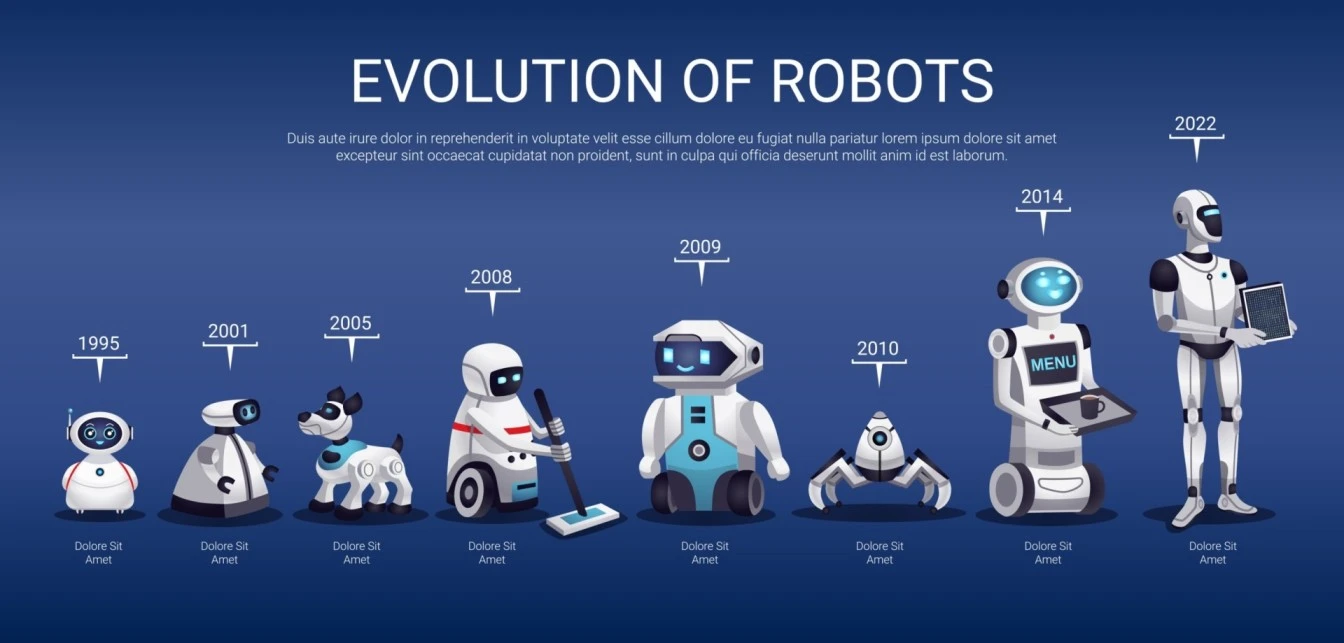Engineers and scientists predict that in the not-too-distant future, robots will be a common sight in a variety of settings, including manufacturing lines, farms, hospitals, maintenance, construction, and residences. In most factories, robots will be able to take the place of humans in jobs that require increased precision and high production rates yet are challenging for human workers to complete correctly.
Future Use of Robots in Daily Life
Robotics specialists throughout the world predict that by the year 2024, machines will be able to converse, observe, do tasks, and have aptitude and intelligence. The interaction between humans and robots will become commonplace. Robots won’t be sophisticated machines in the near future; instead, they’ll be tools or machinery used in daily tasks like washing, helping sick or disabled people move, working in factories, etc.
Automated Surgery
Doctors predict that in the not-too-distant future, sophisticated robots will be used to help with long-distance surgery, diagnostics, and other medical treatments. This will make it possible for the therapy to be completed more quickly and may eliminate the need for patients to travel large distances, which can currently include traveling across continents. Robots may also help with minor medical procedures. Rather than prescribing a pill to treat a specific disease, a small robot may be injected into the bloodstream. This robot will recognize the cause of the ailment and then provide the proper medications to the affected area of the body.
Enhancement Of The Human Brain
Robots will be inserted into human body components, including as the brain’s intellectual cortex, which will boost mental processing and memory. Even the blood will be injected with nanorobots to clean and scour blood arteries. The human mind will be able to execute 100 trillion commands per second with the aid of artificial brains.
In Biomimetics, Robots
The next area of focus for contemporary robots will be biomimetics, which will concentrate on the creation of machinery that draws inspiration from their surroundings to shape their appearance and behavior. Wide-ranging research is now being done in this area.
Robotics’ advantages and downsides
Robotics provides solutions to a wide range of issues. We’ll examine how the development of robots could alter the environment in which we live. That doesn’t mean, however, that the technology is without drawbacks.
There are a number of benefits and drawbacks to deploying robots in the modern world, as examined on our open step from the University of Reading:
Benefits of robots
- In some contexts, they can provide greater productivity, efficiency, quality, and consistency.
- Robots, unlike people, never get bored.
- They can carry on doing this until they become exhausted.
- They are especially helpful in the production of microelectronics because of how exact they can be—even to fractions of an inch.
- Robots can operate in hazardous conditions for people, such as those involving hazardous substances or high radiation levels.
- In contrast to humans, they don’t have the same physical or environmental needs.
- Some robots have actuators and sensors that are more capable than those found in people.
The drawbacks of robotics
- Robots are replacing people in various industries, which can lead to economic issues.
- Generally speaking, robots are unable to improvise because they can only follow instructions (although AI and machine learning is changing this).
- Because of current robotics technology, most machines are less agile than humans and unable to match a human’s capacity for visual perception. Despite the fact that researchers are attempting to create robots with improved world perception.
- In terms of the initial cost, maintenance, the requirement for additional components, and the necessity to teach the robot to perform the task, practical robots are typically expensive.
Which jobs will we see robots doing in the future?
1. Space explorer/space pilgrim. Robots have proactively surpassed people in this field. …
2. Floor cleaners. Robot floor cleaners have been famous in the home for a couple of years. …
3. Drug specialists. Robot drug specialists as of now exist in the UK. …
5. Safety officers. Watching distribution centers, manufacturing plants and workplaces and so on.
Would future robots endanger the planet?
Since they can live forever and are often much tougher and more hardy than humans, robots will definitely one day rule the globe. They also have built-in coding and algorithms that let them to solve issues far more swiftly and are immune to diseases. They will therefore have little trouble seizing control of the situation.
Why won’t robots take our jobs?
They will never be as imaginative as people. Robots can only carry out the jobs that have been programmed into them without becoming tired and with few to no errors. Less emphasis should be placed on selecting a safe profession and more on continuously improving your skills throughout your career in order to make a career robot-proof.
